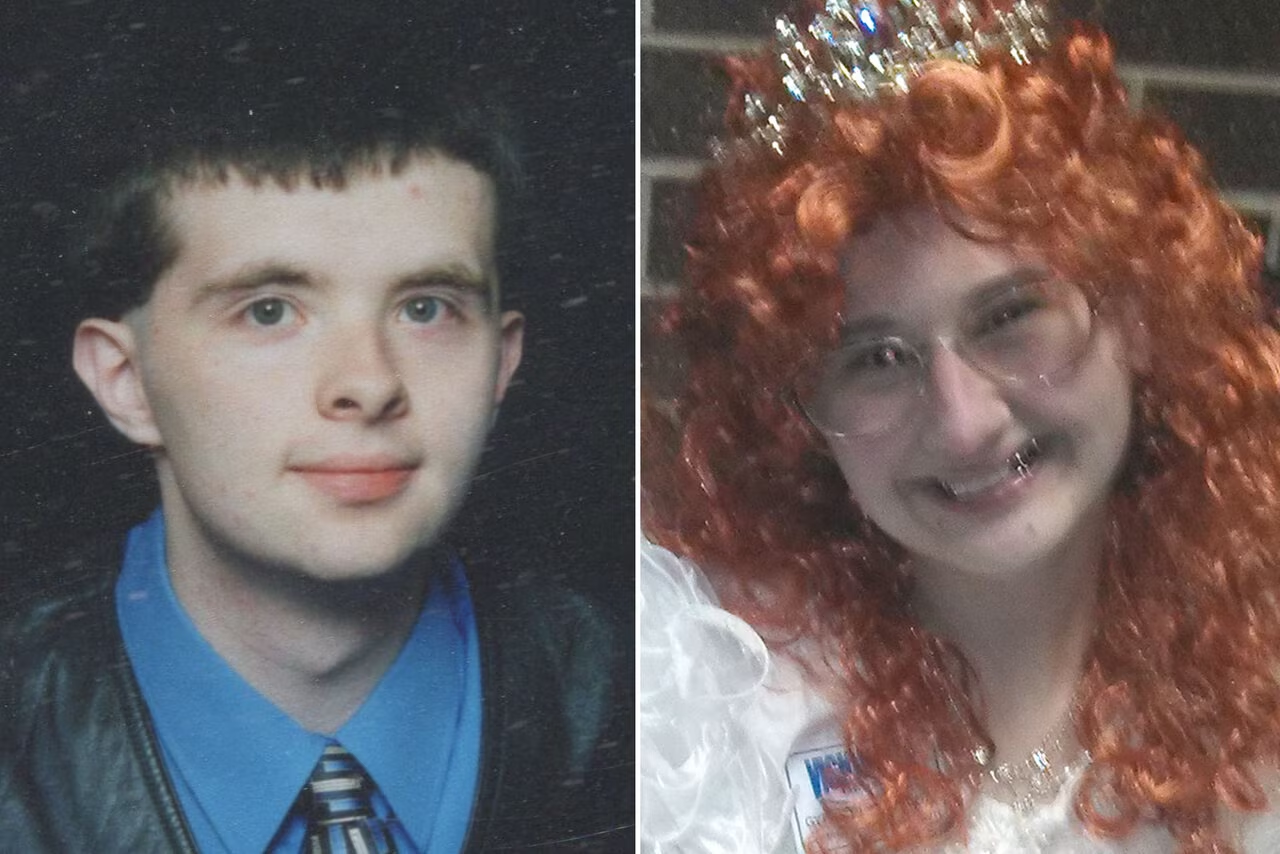Nick Godejohn’s story combines tragedy, crime, and the complexities of human relationships. His name is often associated with the infamous case involving Gypsy Rose Blanchard, which shocked the world due to its chilling mix of deceit, manipulation, and murder. Though many may only know him through headlines, there’s more to his life and actions than what appears at first glance. This article explores Nick Godejohn, his background, the events that led to his crime, and the aftermath of his actions.
Who Is Nick Godejohn?
Nick Godejohn grew up in a small, quiet town in Wisconsin. He was described by many who knew him as an introverted, shy individual. Godejohn struggled with developmental delays and was diagnosed with an autism spectrum disorder. This diagnosis likely shaped his life, making it difficult for him to form relationships or interact with others in a socially conventional manner. He lived a relatively quiet life until he crossed paths with Gypsy Rose Blanchard online, which ultimately changed the course of his life.
Godejohn’s relationship with Gypsy Rose Blanchard is key to understanding his involvement in the crime that brought his name into the spotlight. Their connection wasn’t just casual but intense, obsessive, and ultimately destructive.
The Meeting of Nick Godejohn and Gypsy Rose Blanchard
Nick Godejohn met Gypsy Rose Blanchard on a Christian dating site in 2012. Both were looking for companionship at the time, and their connection was immediate. However, an innocent online friendship soon spiralled into a toxic relationship. Gypsy Rose Blanchard, who was being subjected to years of abuse by her mother, Dee Dee Blanchard, found solace in Nick Godejohn. The two communicated extensively online, sharing their thoughts, feelings, and even dark fantasies.
At this point, Gypsy Rose was trapped in a situation where her mother forced her to pretend to be gravely ill. Dee Dee Blanchard had convinced the world that Gypsy had various medical conditions, including leukaemia, muscular dystrophy, and epilepsy, despite Gypsy being perfectly healthy. This abuse, known as Munchausen by proxy, left Gypsy emotionally and psychologically scarred, making her more susceptible to manipulation and seeking a way out of her life.
Nick Godejohn, already troubled by his mental health struggles, became the person Gypsy turned to for help. However, instead of being her escape from the horrors of her life, their relationship would take a darker turn.
The Crime: The Murder of Dee Dee Blanchard
As Nick Godejohn and Gypsy Rose Blanchard’s relationship deepened, so did the fantasies they shared. The pair spoke about escaping from Dee Dee’s control, and these conversations soon escalated into plotting her murder. Gypsy Rose confided in Nick about the abuse she endured, and Godejohn, though distant, felt deeply connected to her plight. In June 2015, their dark plan was set into motion.
Nick Godejohn travelled to Springfield, Missouri, where Gypsy Rose and Dee Dee lived. On the night of June 14, 2015, Godejohn entered their home, and with Gypsy’s approval, he stabbed Dee Dee Blanchard to death. Gypsy, who was in the other room at the time, later admitted that she couldn’t bear to be in the same room while her mother was being killed.
The aftermath of the murder was chaotic. The pair fled the scene, and within days, the authorities found them at Godejohn’s home in Wisconsin. They were soon arrested, and the full story of the years of abuse, manipulation, and deceit began to unravel.
The Trial and Sentencing of Nick Godejohn
Nick Godejohn’s trial was one of the most highly publicized cases in recent years. While Gypsy Rose Blanchard had her trial, which was shaped by the years of abuse she suffered under her mother, Godejohn’s case was more complex. Though he admitted to committing the murder, his defence team argued that his mental health issues, specifically his autism and developmental delays, made him more vulnerable to manipulation and less capable of understanding the full consequences of his actions.
The court heard testimony from psychologists and experts who evaluated Godejohn’s mental state. They testified that Godejohn had a limited understanding of social cues and was highly susceptible to Gypsy’s influence. However, the jury found him guilty of first-degree murder, and in February 2019, Nick Godejohn was sentenced to life in prison without the possibility of parole.
Gypsy Rose Blanchard’s Role and Sentence
Though Nick Godejohn was the one who physically carried out the murder, Gypsy Rose’s role in the crime was undeniable. She was charged with second-degree murder after cooperating with investigators and explaining her reasons for plotting her mother’s death. She accepted a plea deal and was sentenced to 10 years in prison. However, Gypsy’s case drew significant attention due to the abuse she endured, leading many to see her as both a victim and a perpetrator.
Gypsy’s story, particularly the complexity of her relationship with Nick Godejohn, highlighted the blurred lines between victimhood and criminality. Many have debated whether Gypsy deserved a harsher sentence or more leniency, considering her unique circumstances.
The Psychological Aspects of Nick Godejohn’s Crime
Nick Godejohn’s mental health played a significant role in his actions and the subsequent trial. Diagnosed with autism, Godejohn exhibited behaviours that made him socially isolated and prone to obsessive thinking. His lack of social awareness and understanding of boundaries made it difficult to discern right from wrong, especially when emotions were involved.
Psychologists noted that Nick Godejohn’s obsessive attachment to Gypsy Rose Blanchard made him willing to do anything to protect her, including committing murder. His inability to navigate the complexities of human relationships led him down a path where he felt that killing Dee Dee was not only justified but necessary to free Gypsy.
How Autism Affected Nick Godejohn’s Actions
Autism spectrum disorder (ASD) can manifest in various ways, but in Nick Godejohn’s case, it contributed to his difficulty in forming healthy relationships. People with ASD often struggle with understanding social cues, maintaining emotional boundaries, and interpreting others’ intentions.
In Godejohn’s relationship with Gypsy Rose, his autism made him more vulnerable to her influence. His deep desire for connection and difficulty discerning right from wrong clouded his judgment. Experts argued that while Godejohn understood the act of murder was wrong, his ability to grasp the long-term consequences of his actions and the morality of his decisions was impaired by his developmental issues.
The Media’s Role in Shaping Nick Godejohn’s Story
The case of Nick Godejohn and Gypsy Rose Blanchard became a media sensation. Documentaries, news reports, and a popular Hulu series titled The Act brought the story to the forefront of public consciousness. However, the media’s portrayal of Nick Godejohn has been mixed.
Some outlets focused heavily on Godejohn’s mental health issues and the role they played in his actions, while others painted him solely as a murderer. The media’s fascination with Gypsy Rose’s abuse and her role in the crime often overshadowed Godejohn’s perspective, leading to a somewhat skewed narrative.
It’s important to recognize that while Nick Godejohn committed a heinous crime, his mental health and personal struggles played a significant role in shaping his actions. The media’s portrayal of him as either a villain or a misunderstood individual often missed the complexity of his situation.
Aftermath: The Impact of Nick Godejohn’s Case
Nick Godejohn’s case has left a lasting impact on how society views mental health, criminal justice, and the influence of relationships on behaviour. His life sentence without parole has sparked debates about the fairness of the legal system, particularly when dealing with individuals who have developmental or mental health issues.
The case has also brought attention to the broader issue of abuse, especially cases of Munchausen by proxy, which are often difficult to detect and prosecute. Gypsy Rose Blanchard’s experience under her mother’s control highlighted the severe psychological damage such abuse can cause, leading to tragic outcomes.
Nick Godejohn remains incarcerated, and his story serves as a cautionary tale of how vulnerability, manipulation, and mental health struggles can intertwine in devastating ways.
Conclusion: Nick Godejohn’s Legacy
Nick Godejohn’s story is one of complexity and tragedy. While he committed a crime that shocked the world, the circumstances surrounding his actions reveal deeper issues about mental health, abuse, and the justice system. His relationship with Gypsy Rose Blanchard, though rooted in love and loyalty, ultimately led both down a dark path from which neither could escape unscathed.
Though Nick Godejohn will spend the rest of his life in prison, his story continues to provoke important conversations about the role of mental health in criminal behaviour and the thin line between victim and perpetrator.




